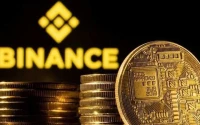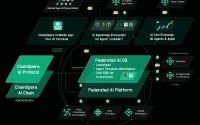The Day Parliament's Code Was Broken
I’ve spent my life studying systems. From the elegant logic of neural networks at MIT to the chaotic, emergent beauty of global communication platforms, I look for the patterns, the protocols, and—most importantly—the moments they break. And when I saw the footage from Wellington, New Zealand—an Unapproved haka halts New Zealand parliament following Te Pāti Māori MP Oriini Kaipara's address—I didn’t see a protest. I saw a system crash. I saw a legacy operating system encountering a data packet so rich, so complex, and so fundamentally human that its only response was to blue-screen.
Imagine the scene. The hallowed chamber of Parliament, a place governed by centuries of rigid, text-based rules. Whispers, polite applause, the rustle of paper. It’s a low-bandwidth environment by design. Then, a new member of Te Pāti Māori, Oriini Kaipara, finishes her maiden speech. And from the public gallery, an explosion of pure, uncompressed data erupts: a haka. It’s not just a dance; it’s a living algorithm of identity, challenge, and respect, executed with breathtaking passion. It’s a torrent of information conveyed through voice, body, and spirit.
The system administrator—in this case, Speaker Gerry Brownlee—did exactly what any old system would do when faced with an unrecognized command. He tried to shut it down. "No, not that," he declared, his voice a firewall trying to block a data surge. The session was suspended. The official record will call it “contemptuous.” But I call it a diagnostic error. The system didn't fail because the users were wrong; it failed because the code is too old to understand the input. What does it tell us when our most important institutions can no longer process our most authentic forms of communication?
A System Update is Overdue
For decades, we’ve been upgrading everything in our lives except our social structures. We carry supercomputers in our pockets that process terabytes of information, communicating through video, memes, and streams of consciousness, yet we expect our governance to run on the equivalent of MS-DOS. It’s a fundamental mismatch. The haka in that chamber was like trying to play a 4K virtual reality stream on a black-and-white television. The TV isn’t evil; it’s just obsolete.

This is a paradigm shift in communication—in simpler terms, it’s about how we talk to each other and who gets to set the rules. For centuries, power was expressed through formal, written language, a protocol designed by and for a specific culture. Anything outside that was deemed noise, disorder, or, as the Speaker put it, “contemptuous.” But the internet has flattened everything. It has taught a new generation that a GIF can carry more emotional weight than a paragraph, that a shared experience can unite millions in an instant, and that authenticity is the ultimate currency. The members of Maori New Zealand performing that haka weren't just breaking a rule; they were speaking in their native tongue, a high-bandwidth language of cultural significance that the institution was simply not equipped to parse.
When I first saw the clip, I honestly just sat back, a huge grin on my face. This is the kind of beautiful, chaotic, necessary friction that signals real change is happening—it’s the indicator that the gap between our analog past and our digital future is closing so fast that the institutions themselves are getting whiplash. This isn't just a piece of `new zealand news`; it's a global story. It’s the 21st century knocking on the door of the 19th and not waiting for an answer. We saw a similar thing happen in June when Māori MPs used a haka to protest a bill, a bill that was ultimately defeated. Coincidence? Or is it proof that when old language fails, a new one must be heard?
This is no different than the invention of the printing press. Before Gutenberg, information was controlled by a select few who could read and write Latin. The press democratized the written word, and it threw Europe into centuries of upheaval. It was messy, but it was progress. Today, we are living through a similar democratization of expression. We’re moving beyond just text. We’re communicating with our whole selves, and we’re demanding that our systems learn to listen. The question is no longer if our institutions will be upgraded, but who will write the new code? And what happens to those who refuse to install the update?
The Glitch is the Feature
Look, you can see this as a breakdown of order, or you can see it for what it truly is: a live stress test. The haka didn't break Parliament; it revealed the brittleness of its existing protocols. That "contemptuous" act wasn't an error. It was a feature of a vibrant, living culture refusing to be compressed into a format it has outgrown. This isn't a bug in the system. This is the system being shown a better way to operate—one that is more inclusive, more emotionally intelligent, and infinitely more human. The real disruption isn't the dance; it's the dawning realization that the old code just won't run anymore.









